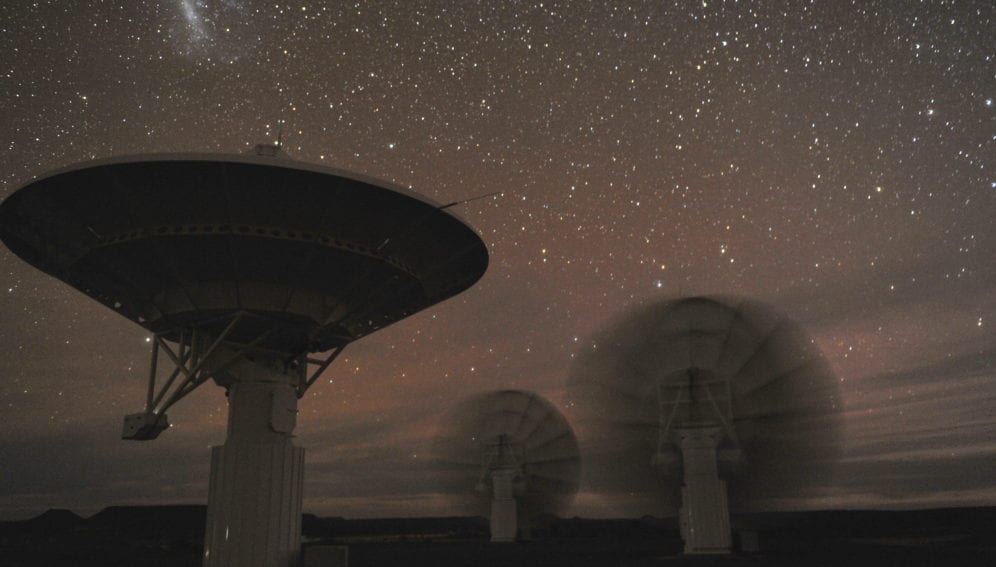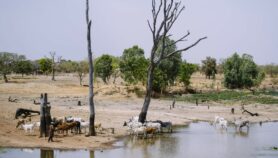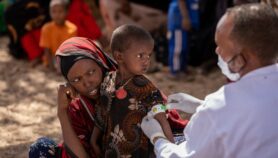Send to a friend
The details you provide on this page will not be used to send unsolicited email, and will not be sold to a 3rd party. See privacy policy.
[CAPE TOWN] Seven nations including South Africa have signed a treaty to establish an international organisation to implement the world’s largest radio telescope project.
The Square Kilometre Array (SKA) project aims to build the world’s largest radio telescope, which will be available across a square kilometre of collecting area.
“South Africa’s signature on the establishment of the SKAO [Square Kilometre Array Organisation] as an intergovernmental legal entity to oversee the construction and operational phases of the SKA project is a crucial milestone and one which should be celebrated,” said Mmamoloko Kubayi-Ngubane, minister of science and technology, South Africa, in a statement published yesterday (12 March) when the agreement was signed in Rome, Italy.
“Young scientists in training will now have access to data from the world’s best radio telescope”
Carolina Ödman-Govender, University of Western Cape, South Africa
“What makes this particularly unique is the fact that for the first time, Africa, Asia, Australasia and Europe, commit at the inter-governmental level to collaborate on a large-scale science project as equal partners,” Kubayi-Ngubane added.
The other countries that signed the treaty yesterday to establish the Square Kilometre Array Organisation were Australia, China, Italy, the Netherlands, Portugal and the United Kingdom, with India and Sweden expected to sign later to the seven as founding members of the new organisation, the statement added.
According to Kubayi-Ngubane, international cooperation in science could help address global challenges such as poverty, inequality and climate change.
In South Africa, the scope of the infrastructure and power products for the mid-frequency array includes access roads, communication and security, said Tracy Cheetham, head of construction planning of the South African Radio Astronomy Observatory.
The two engineering consortia tasked with designing all the essential infrastructure for the Square Kilometre Array sites in Australia and South Africa announced the completion of their work last month (25 February).
Cheetham said that there will be opportunities for the engineering and construction sectors in South Africa during the construction phase of the project.
Carolina Ödman-Govender, an associate professor of astronomy and physics at the University of Western Cape, South Africa, told SciDev.Net that there is no doubt that the Square Kilometre Array will make a solid impact on education and the economy in Sub-Saharan Africa.
“Young scientists in training will now have access to data from the world’s best radio telescope and will be at the forefront of developing new big data strategies that will quickly permeate the business sector as well,” she said.
While scientists and engineers are busy building African excellence, policymakers need to foresee and embrace the opportunities that arise from this effort and seize them, Ödman-Govender explained.
Ödman-Govender hopes Africa will lead the way in the next five years in new technologies and bring untapped talent to the world stage but for that to be realised, international cooperation needs to continue in a current climate of increased nationalism, protectionism and diminishing budgets.
“Generations of PhD, masters and honours students will graduate from our institutions and establish themselves as a force to be reckoned with, and shaping a new, more diverse face of science,” she told SciDev.Net.
“The will is there but making the SKA project a priority of governments is not there,” explained Rakotomalala. There are many competing priorities and I cannot fault [African] governments,” Rakotomalala told SciDev.Net.
This piece was produced by SciDev.Net’s Sub-Saharan Africa English desk.














